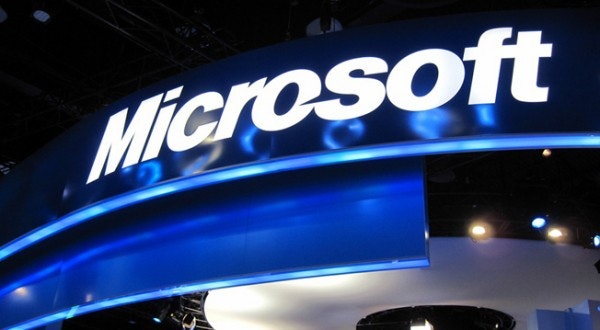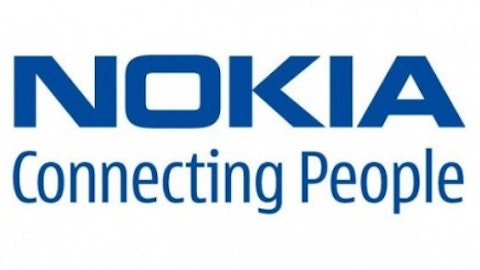The PC market got a dose of dire news recently after research firms IDC and Gartner released bleak forecasts for PC sales in 2013. Shares of Microsoft Corporation (NASDAQ:MSFT), Hewlett-Packard Company (NYSE:HPQ), Dell Inc. (NASDAQ:DELL) and Intel Corporation (NASDAQ:INTC) all plunged on the forecast, which revealed that Windows 8 wasn’t the silver bullet that the industry needed to kill (or at least slow down) Apple Inc. (NASDAQ:AAPL) and Google Inc (NASDAQ:GOOG).
A glimmer of hope gets snuffed out
During its second quarter, Microsoft Corporation (NASDAQ:MSFT) reported that revenue at its Windows division rose 24%. The company stated that it has sold over 60 million Windows 8 licenses since its release last October. Although those numbers weren’t too bad, sales at its Windows division have slowed for four consecutive quarters, which means that Windows 8 failed to attract the interest that the company had hoped for.

Microsoft’s long-time ecosystem partners Intel, Hewlett-Packard and Dell had pinned their hopes on Windows 8. Asian partners Lenovo, Asus and Acer also claimed that Windows 8-powered ultrabooks would usher in a new era of strong PC sales.
Did Microsoft just kill the PC market?
Despite everyone’s high hopes for Windows 8 reviving the slumping PC market, Microsoft Corporation (NASDAQ:MSFT)’s operating system has exacerbated its losses instead. Windows 8 has been met with mixed reviews, and is often criticized for its steep learning curve and hybrid system of tiles optimized for touch-screen devices.
Bleak numbers from research firm IDC strongly suggest that the release of Windows 8 has contributed to the current free fall of the PC market. For the first quarter of 2013, IDC estimated that global PC shipments declined 13.9% year-on-year to 76.3 million units, worse than the 7.7% decline that it had previously forecast. U.S. PC shipments dropped 12.7% year-on-year. The Asia-Pacific region declined 10.3% year-on-year, with China and India posting the steepest drops.
Global PC shipments have declined for four consecutive quarters. This was also the PC market’s worst decline since IDC started tracking the PC market’s performance in 1994. Total quarterly shipments, at 14.2 million, also dropped to their lowest level since the first quarter of 2006.
Hewlett-Packard Company (NYSE:HPQ), considered the bellwether of the PC industry, reported that its PC shipments fell 23% in its most recent quarter. HP is still reeling from its ill-advised $10.2 billion takeover of Autonomy, the U.K.-based company that the company later accused of accounting fraud. HP was forced to take an $8.8 billion writedown as a result of the debacle.
Meanwhile, Chinese competitor Lenovo, which took over IBM’s personal computer business in 2005, has steadily gained on HP, and now threatens to take over Hewlett-Packard Company (NYSE:HPQ)’s top position as the world’s largest PC vendor by unit sales.
Soaring tablet sales
Meanwhile, research firm Gartner expects global tablet shipments to soar 70% due to lower prices, a wider variety of models, more cloud-based services and applications, and the popularity of mobile apps.
By the end of 2013, Gartner forecasts total tablet shipments to hit 197 million units in 2013, 266 million in 2014, and 468 million in 2017.
On this front, Asus, Acer, Lenovo, and Dell have offered Android-based tablets and hybrid devices to remain competitive, much to Microsoft Corporation (NASDAQ:MSFT)’s chagrin. Only Hewlett-Packard, which is fumbling around with WebOS, has yet to release an Android tablet. Yet in hindsight, offering Android devices saved Acer and Lenovo from the dire fate of Hewlett-Packard.
Shifting standards
Ever since the launch of Apple Inc. (NASDAQ:AAPL)’s seminal iPad in 2010, consumers have shown an increasing preference for tablets as their primary computing devices. Cloud-based storage solutions, such as Google Docs and Dropbox, have increasingly rendered large hard drives, optical drives and even USB flash drives irrelevant. Bluetooth keyboards, some offered with a tablet case, can instantly transform tablets into netbooks.
For users of Windows 8, like myself, Microsoft’s attempt to fuse tablet-like features with its traditional desktop OS is incohesive. While some streamlined apps run smoothly with its Metro UI (tablet interface), others are redundant and incomplete.
For example, the Windows 8 Dropbox app – which merely allows users to browse their cloud drives – is a huge step backwards from Dropbox for Windows 7, which seamlessly integrated Dropbox’s storage drive directly into Windows Explorer.
Another major problem with touch-based Windows 8 notebooks is the price. Higher-end ultrabooks are currently priced above $1,000 – making them more expensive than the Apple’s MacBook Air. That simply doesn’t make any sense, since ultrabooks, heavily influenced by the MacBook Air’s popular design aesthetics, were originally intended to be a cheaper alternative to Apple’s popular lightweight laptop. Meanwhile, clumsy hybrid devices, such asDell’s XPS 12 and Microsoft Corporation (NASDAQ:MSFT)’s Surface, simply showcase the confused approach of creating a combination tablet/laptop that ends up being inferior to both.
A matter of DNA
Another major issue with Windows 8 and PCs is the matter of shared DNA. Google Android smartphone owners are more likely to purchase an Android tablet as a complementary device, because purchased apps can often be installed and synchronized between both devices. iPhone owners are more likely to purchase an iPad for the same reason: iOS.
Now consider the whopping combined market share of Android and iOS smartphones – 92% at the end of the fourth quarter of 2012 – and it’s easy to see why Windows 8 tablets, hybrid devices, laptops and desktops are being ignored by consumers.
Microsoft is aware that smartphone sales are driving tablet sales, which is why it partnered up with Nokia Corporation (ADR) (NYSE:NOK) to boost the profile of Windows Phone 8. But just like Microsoft Corporation (NASDAQ:MSFT), Nokia’s market share has been marginalized by Android and iOS devices. Creating some shared DNA between the two devices might help both companies stay in the race, but Microsoft’s poor performance on the PC front is showing that it may actually be a liability, and not an asset, to Nokia.
If Nokia wants to truly boost its sales, I think that breaking ties with Microsoft in favor of Android would make much more sense. In addition, Facebook Inc (NASDAQ:FB)’s Home launcher, which was created for Android devices, could give Nokia Corporation (ADR) (NYSE:NOK) the social shot in the arm that Microsoft promised but never quite delivered. Switching over to Android could also allow Nokia Corporation (ADR) (NYSE:NOK) to release tablets of its own, easily unified by shared DNA with its own smartphones and the rest of the Android ecosystem.
The Foolish Bottom Line
It’s obvious that Microsoft Corporation (NASDAQ:MSFT), Hewlett-Packard and the rest of the PC industry is in serious trouble. While I believe Microsoft will survive, I believe that its top line will decline significantly in the near future as it struggles to find ways for its other segments (entertainment, business, IT servers and tools, and online services) to offset these losses.
So in other words, stay far away from this industry. Microsoft just shot its own allies with the silver bullet meant for Apple Inc. (NASDAQ:AAPL) and Google Inc (NASDAQ:GOOG), and things are about to get a whole lot bloodier.
Leo Sun owns shares of Apple and Nokia. The Motley Fool recommends Apple and Google. The Motley Fool owns shares of Apple, Google, and Microsoft.
